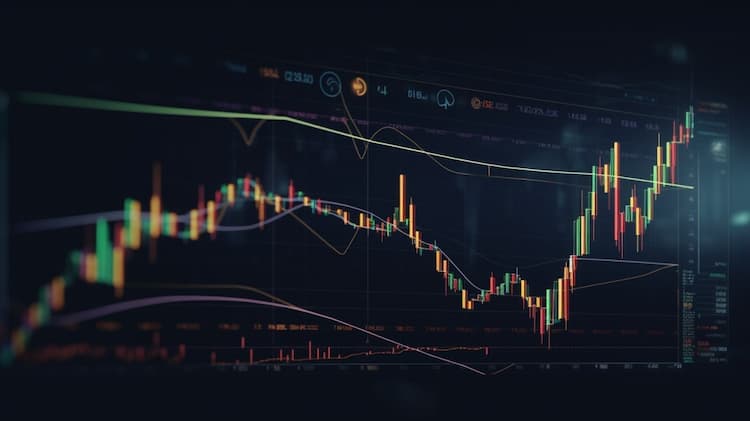
Is IVV a good investment?
When considering investment options, it's important to evaluate the potential merits of specific assets, such as the IVV ETF. IVV, or the iShares Core S&P 500 ETF, aims to track the performance of the S&P 500 index, which represents a broad range of large-cap U.S. stocks. In this article, we will explore whether IVV is a good investment and provide insights into the factors to consider when evaluating its potential. By examining the historical performance, diversification benefits, and cost-effectiveness of IVV, investors can make informed decisions about incorporating it into their portfolios and potentially benefit from the growth potential of the U.S. stock market.
Understanding IVV as an ETF
IVV, or iShares Core S&P 500 ETF, is an investment option that provides exposure to the performance of the S&P 500 Index. As one of the most widely followed benchmarks for the U.S. stock market, the S&P 500 includes 500 large-cap companies from various sectors. IVV offers investors a convenient and cost-effective way to gain diversified exposure to these companies within a single investment vehicle.
To gain a deeper understanding of IVV and its potential as an investment, it's important to explore key questions related to ETFs and financial instruments.
What Are the Benefits of Investing in ETFs?
ETFs, or exchange-traded funds, offer several advantages for investors. Firstly, they provide broad market exposure, allowing investors to gain access to a wide range of securities in a specific market or sector. This diversification helps reduce the risk associated with investing in individual stocks.
Additionally, ETFs like IVV offer transparency, as they disclose their holdings on a daily basis. This transparency allows investors to know exactly what assets the fund holds and make informed investment decisions accordingly.
Furthermore, ETFs are known for their liquidity, as they can be bought and sold on stock exchanges throughout the trading day. This liquidity ensures that investors can easily enter or exit their positions without significant price impact.
 IVV overlap Is IVV a good investment?
IVV overlap Is IVV a good investment?
How Does IVV Perform Compared to Other S&P 500 ETFs?
When considering IVV as an investment, it is important to compare its performance to other ETFs that track the S&P 500. While IVV aims to replicate the performance of the index, there may be slight differences in returns due to factors such as expense ratios and tracking error.
Websites like ETF Database and Morningstar offer comprehensive analysis and comparisons of ETF performance, including IVV. By reviewing these resources, investors can gain insights into how IVV performs relative to its peers and make informed decisions based on their investment objectives.
It is worth noting that past performance is not indicative of future results, and investors should consider multiple factors before making investment decisions.
What are the Risks Associated with Investing in IVV?
While IVV provides diversification and exposure to the S&P 500, it is important to be aware of the risks associated with investing in this ETF. Market volatility, economic factors, and geopolitical events can all impact the performance of the S&P 500 and, consequently, IVV.
Investors should also consider the specific risks associated with ETFs, such as tracking error and liquidity risk. It is crucial to thoroughly research and understand these risks before investing in IVV.
For comprehensive information on the risks associated with ETF investing, investors can refer to the official website of iShares (link5) and the U.S. Securities and Exchange Commission's educational resources on ETFs (link6).
IVV, as an ETF offering exposure to the S&P 500, can be a valuable addition to an investor's portfolio. By understanding the benefits of investing in ETFs, comparing IVV's performance to other S&P 500 ETFs, and being aware of the associated risks, investors can make informed decisions regarding IVV as an investment option. However, it is important to conduct thorough research and seek professional advice before making any investment decisions.
Disclaimer: This article is for informational purposes only and does not provide investment advice. Always conduct thorough research and consult with a qualified financial advisor before making investment decisions.
Source 1: IVV issuer website Source 2: Reuters article about IVV
IVV quote and analysis
Discover the top holdings, correlations, and overlaps of ETFs using our visualization tool.
Our app allows you to build and track your portfolio.
To learn more about the IVV iShares Core S&P 500 ETF, access our dedicated page now.
FAQ
What is IVV?
IVV is the ticker symbol for the iShares Core S&P 500 ETF. It represents an exchange-traded fund that aims to track the performance of the S&P 500 Index.
Does IVV pay dividends?
Yes, IVV pays dividends. As an ETF tracking the S&P 500 Index, it collects dividend payments from the underlying stocks in the index and distributes a portion of those payments to IVV investors as dividends.
Is IVV a good investment?
The suitability of IVV as an investment depends on individual investment goals, risk tolerance, and other factors. IVV offers broad exposure to the largest U.S. companies represented in the S&P 500 Index. It can be a suitable long-term investment for investors seeking broad market exposure to U.S. equities.
How often does IVV pay dividends?
IVV typically pays dividends on a quarterly basis. The frequency and amount of dividends can vary depending on the dividends received from the underlying stocks in the S&P 500 Index.
Is IVV a mutual fund?
No, IVV is an exchange-traded fund (ETF), not a mutual fund. ETFs and mutual funds are different investment vehicles with varying structures and characteristics. IVV is traded on stock exchanges like a stock, while mutual funds are bought and sold at the end-of-day net asset value (NAV).





